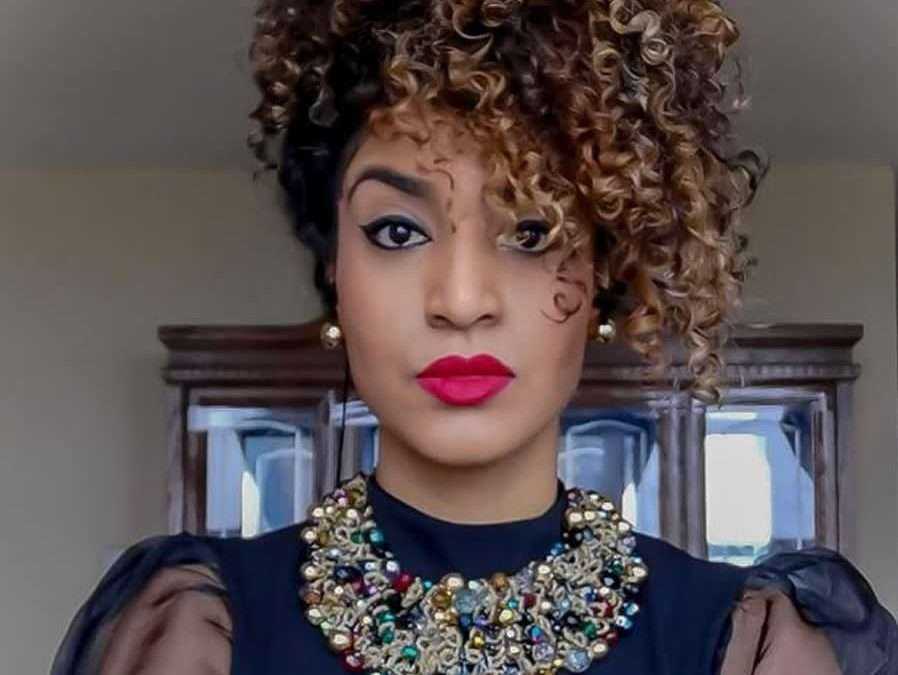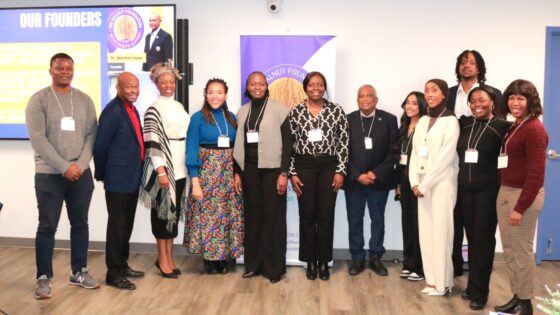on
BY SIMONE J. SMITH
“I fought my way into where I am today.”
Traumatized by her own family as a child, developing mental health illnesses at the age of sixteen, diagnosed with Post Traumatic Stress Disorder and anxiety at twenty-one, living with a mentally unhealthy mother, and abusive father; it is fair to say that our Woman Empowered feature has experienced extreme negatives in her life, and although she still battles with her demons, she has emerged as the phoenix of her time. Bold. Unapologetic. Determined. These characterize a creative feminine force that I have grown to love and admire; the pulchritudinous Halima Al-Hatimy.
Policy entrepreneur, academic and healthcare professional Halima Al-Hatimy is a dynamic force to be reckoned with. With over a decade of experience in Ontario’s Healthcare system, she remains a strong advocate for social justice, human rights and women’s health and wellness.
In this feature, we are going to discover the power of Halima, and her passion for mental health and wellness that was sparked by her own challenging experiences with period poverty, endometriosis, premenstrual dysphoric disorder and sociocultural taboos around menstruation.
“When I was a child, I was a spiritual seeker. There was more than what I was seeing.”
After fifteen years of struggling with menstrual-related health issues, Halima noticed that there was a systemic need for better menstrual care. I had an opportunity to speak with Halima about her decision to be so proactive in this field.
“I was so traumatized by my upbringing. My life was dulled, and my mental health issues came out when I was sixteen. Unfortunately, I was not diagnosed until I was twenty-one with PTSD and anxiety. My mother was mentally unhealthy, and my father kept the family as domestic slaves. Naturally, this led me to being very angry in my youth. My father abducted me at the age of fourteen. He held us in confinement for seven hours, and physically and emotionally tormented us the entire time. We got away, but then my mom took him back. This is when he started plotting.”
The abduction occurred when Halima’s father told them he was taking them on vacation to Kenya, and when she arrived, she discovered that her dad had just used this as a guise. His goal was to marry her off for 100,000 shillings. “When I found out what my dad was up to, I told them that I rather swallow bleach then get married. I think they were surprised by my response, so they eventually backed off. It was my aunt who helped me get back to Canada, but when I arrived, my traumatic experiences just continued.”
Halima retells the horrible experience of what she encountered when she arrived back in Canada. “My legal guardian abused me. Her son sexually abused me. In our culture, we need to have a man, so he told me that because my father abandoned me, I needed a man. I dropped out of high school at the age of seventeen, and I left the care of my guardian at the age of twenty.”
Her career path became clear when she began her post-graduate education. “I worked as a nurse, and saw how the elderly, and disabled were being treated.
Being a manager of a nursing home was not going to make the impact that I wanted to see. I started looking at policy. I did not want the government to have control over how these people lived. I realized with the right policy, real change could occur.”
Halima also became interested in cannabis and mental health. She was curious about how cannabis could treat PTSD. She learned that there were chemical compounds in the plant called cannabinoids that have shown therapeutic effects. The main cannabinoids are CBD and THC, both known for their medicinal benefits. The improved understanding of these benefits has helped cannabis become well endorsed as a source of treatment and relief from conditions like: anxiety, insomnia, and pain. It has also shown effectiveness in helping people suffering from posttraumatic stress disorder, or PTSD. (Angelique Moss, Healthcare in America).
Understanding the power of policy, she narrowed in her focus on menstrual-related health issues. Halima started FemCare as a grass roots public health project in 2015 and registered it as a non-profit organization in 2018 to respond to this growing need. In just five years, FemCare has grown into the world’s trusted leader in menstrual policy consulting, research, education and entrepreneurship. As an organization, they strive to eliminate the misconceptions around menstruation by promoting community-based education on the different dimensions of menstrual health and wellness.
Halima holds FemCare very dear to her, and there is a good reason for that. “Period poverty. Taboo. Stigma. I have had to deal with all of that on some level. When I was back in Kenya, my father found ways to torture me. One thing he did was with hold funds from me to buy toiletries when I was on my period. I actually had to pan handle, ask friends for pads. It was embarrassing. When I came back to Canada, it took fourteen years to be diagnosed with endometriosis, and ten years to be diagnosed with pre-menstrual dysphoric disorder. It has not been an easy road for me, but this is why FemCare is a global necessity.”
FemCare is the first non-profit organization in North America to convince a government body to fund menstrual products for those with the greatest need. In 2016, Mitzie Hunter personally invited Halima, to attend the provincial pre-budget consultation, where she began advocating for period poverty to be recognized as a political issue. FemCare has partnered with a number of corporations, government agencies and community agencies to support their ground-breaking work.
“There is a whole field of study that has not been looked at, and there are many questions to be considered. One thing I have noticed is that the majority of research is done on white subjects. There is no diversity in these studies, and something has to be done about that. It is the only way that we can create policies that will help women who are struggling with issues surrounding menstruation.”
If there are any women who are interested in this topic, feel free to visit FemCare, and definitely reach out to Halima Al-Hatimy. She is truly a woman empowered, helping empower others.
FemCare
https://www.femcarechi.com/?fbclid=IwAR1Qm0TiqPXRTXHwMkG5qSozb8xOn1EeUHp9Nq1YxwCOIWRbWRQFoWRmq2g
Stay in the loop with exclusive news, stories, and insights—delivered straight to your inbox. No fluff, just real content that matters. Sign up today!
We, as humans are guaranteed certain things in life: stressors, taxes, bills and death are the first thoughts that pop to mind. It is not uncommon that many people find a hard time dealing with these daily life stressors, and at times will find themselves losing control over their lives. Simone Jennifer Smith’s great passion is using the gifts that have been given to her, to help educate her clients on how to live meaningful lives. The Hear to Help Team consists of powerfully motivated individuals, who like Simone, see that there is a need in this world; a need for real connection. As the founder and Director of Hear 2 Help, Simone leads a team that goes out into the community day to day, servicing families with their educational, legal and mental health needs.Her dedication shows in her Toronto Caribbean newspaper articles, and in her role as a host on the TCN TV Network.













